News and Announcements
Spark Community Advisors Pave the Way for Digital Equity
Published Date
- July 25, 2024
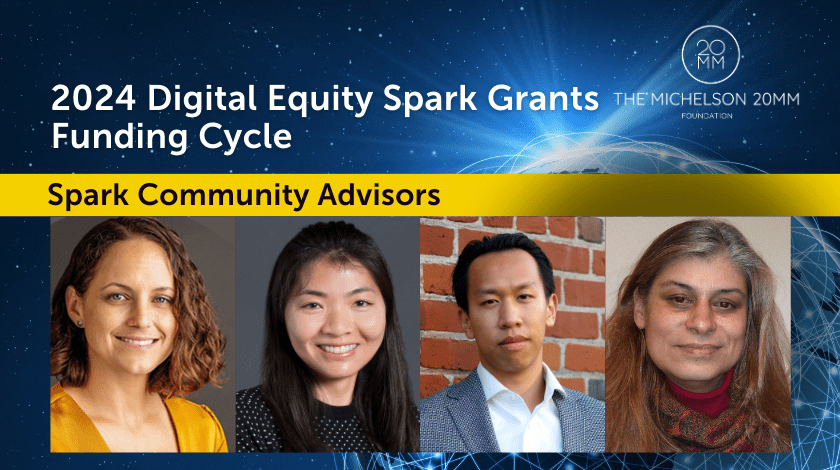
We are pleased to highlight Spark Grant Community Advisors Amy Cortina, Niu Gao, Chao Jun Liu, and Tracey Rosenberg, who shared their valuable feedback during this funding cycle.
In an increasingly digital world, access to technology and reliable internet is a necessity for equitable participation in education, healthcare, employment, and civic engagement. Many communities–particularly underserved and historically marginalized ones–continue to face significant barriers to accessing these essential resources. As a result, the digital divide persists, exacerbated by systemic inequalities and infrastructural limitations.
To illustrate this: According to the Pew Research Center, approximately 9M students do not have reliable access to high-speed internet at home. In addition to learning challenges, disparities in digital access exacerbates socio-economic inequalities. In fact, the Federal Communications Commission found 30% of households earning less than $30K annually lack broadband subscriptions compared to just 6% of households earning $75K or more.
Recognizing that true progress requires concerted efforts and innovative solutions, the Michelson 20MM Foundation continues championing initiatives that close the digital divide in all of its forms. This year, the focus remains steadfast with the 2024 Digital Equity Spark Grants funding cycle.
Focus Areas of the Digital Equity Funding Cycle
The cycle, open from May 28th – June 11th, 2024, funds projects that tackle digital inequities through systematic strategies. These initiatives are designed to inform public policy, address historical injustices, and empower communities across California. Here are key focus areas:
- Eliminating Digital Discrimination: Efforts that help address the impact that low-quality and/or unaffordable Internet has in areas that may superficially appear to have Internet access, and provide tools to combat digital discrimination and to promote equitable access to broadband throughout California. By focusing on the role of race in the historical causes of digital equity, we seek to grow awareness and uplift the voices and needs of underserved communities that have been deliberately excluded from connectivity by systematic redlining and disinvestment. These may include but are not limited to:
- Efforts that highlight disparities in broadband access
- Research that addresses mapping shortcomings at the state level
- Storytelling, surveying, testimonial-gathering
- Digital Equity in Tribal Communities: Projects that help Tribal communities bridge the digital divide and achieve digital sovereignty. This may include but isn’t limited to:
- Digital Equity Research & Education (i.e.: Research on the impact of digital inequity on Tribal communities, digital equity best practices, and more)
- Community Capacity-building
- Broadband Infrastructure Workforce Development
- Policy Advocacy and Civic Engagement: Efforts that increase civic participation in digital equity policy-making and regulatory processes at the local, regional, or state-level (including the education of state policy-makers on key digital equity issues). This may include efforts focusing on education, capacity-building, and the equitable implementation of digital equity policy
- Digital Equity as a Social Determinant of Health: Efforts that address digital inequity through its impact as a social determinant of health, and that can be a promising practice to be scaled across the state. Efforts that bridge the digital divide in at least one of the following issue areas:
- Higher Education (i.e.: Research on the impact of digital inequity on college students)
- Healthcare/Public Health (i.e.: Equitable access to digital healthcare)
- Economic Opportunity (i.e.: Workforce Development; equitable access to seeking, applying, and securing jobs)
- Civic Engagement (i.e.: Access to public benefits)
- Digital Equity and Artificial Intelligence (AI): Projects that aim to ensure communities that have been historically underinvested have access to and are prepared to take advantage of technological advancements in AI for full participation in our society, as well as projects that are aimed at increasing transparency and equity in the use and development of AI tools.
Welcoming the 2024 Spark Community Advisors
To effectively address complex societal challenges, such as the digital divide, we must leverage the expertise of people with direct experience. Their firsthand insights and lived experiences provide perspectives that can illuminate root causes, identify nuanced barriers, and inform more impactful solutions. As we prepare to announce the 2024 Digital Equity Spark Grant recipients, we are pleased to highlight the Spark Community Advisors and are grateful for their valuable feedback:
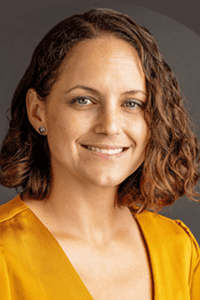 Amy Cortina
Amy Cortina
Senior Vice President of Strategic Partnerships, UNITE-LA
Amy Cortina joined UNITE-LA in 2014 where sheadvances their mission by identifying, cultivating, and developing opportunities that expand the organization’s resources and partnerships. Prior to joining UNITE-LA, Cortina took a development job at a prestigious independent school in Washington, D.C., where she witnessed what high-quality, anti-racist education could be. It was there that Cortina knew she wanted every person, no matter his or her socio-economic status, to have the same high-quality education and career opportunities.
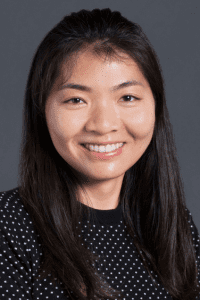 Niu Gao
Niu Gao
Principal Researcher, American Institutes for Research
As a principal researcher at American Institutes for Research (AIR), Niu Gao specializes in K-12 education policy. Her current work focuses on COVID-19 and education, and she is leading projects to 1) examine the impact of the pandemic on K-12 education and 2) identify effective strategies to help students recover—and recover equitably. Gao’s other areas of expertise include the digital equity gaps in education and the transition from high school to college.
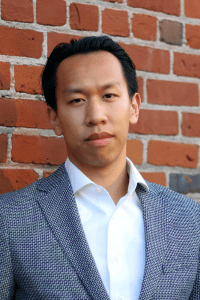 Chao Jun Liu
Chao Jun Liu
Legislative Associate, Electronic Frontier Foundation
Chao Jun Liu leads the state-wide Cal Fiber community discussions as a legislative associate at the Electronic Frontier Foundation (EFF). In his role, Liue leads EFF’s advocacy for a free, open, and accessible internet in state legislatures and Congress. EFF is the leading nonprofit defending digital privacy, free speech, and innovation.
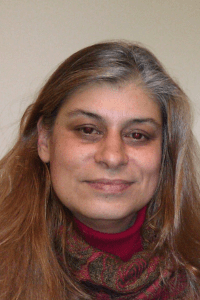 Tracy Rosenberg
Tracy Rosenberg
Executive Director, Media Alliance
Tracy Rosenberg has worked as Media Alliance’s Executive Director since 2007. She has organized and advocated for a free, accountable, and accessible media system. Rosenberg’s work focuses on the protection and sustainability of alternative media outlets, monitoring the mainstream media for accuracy and fair representation, and the training of numerous nonprofit organizations and citizen’s groups in effective communications.
We extend our gratitude to the Spark Community Advisors for their help in ensuring selected projects have the potential to be impactful at scale. Stay tuned for more in the coming weeks!
Michelson 20MM is a private, nonprofit foundation working toward equity for underserved and historically underrepresented communities by expanding access to educational and employment opportunities, increasing affordability of educational programs, and ensuring the necessary supports are in place for individuals to thrive. To do so, we work in the following verticals: Digital Equity, Intellectual Property, Smart Justice, Student Basic Needs, and Open Educational Resources (OER). Co-chaired and funded by Alya and Gary Michelson, Michelson 20MM is part of the Michelson Philanthropies network of foundations.
To sign up for our newsletter, click here.